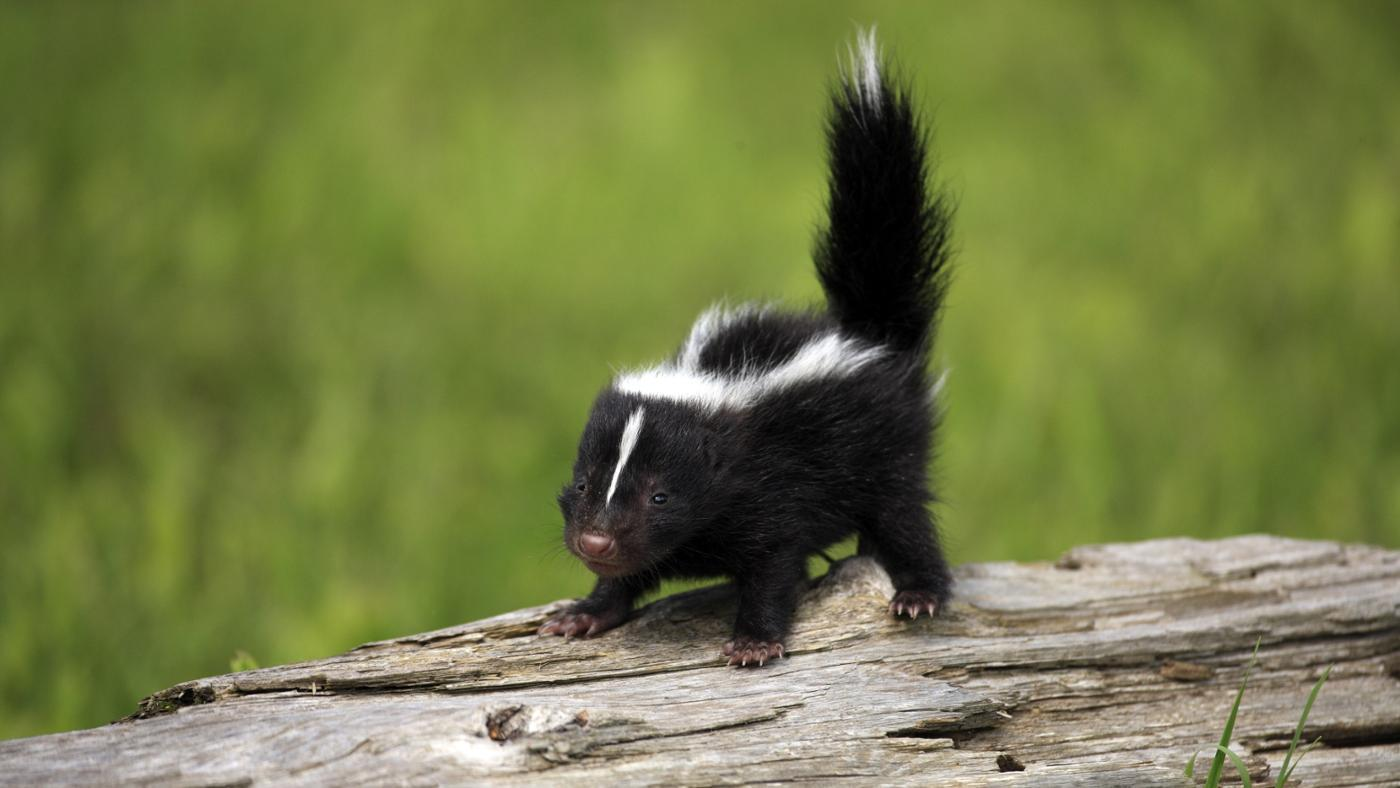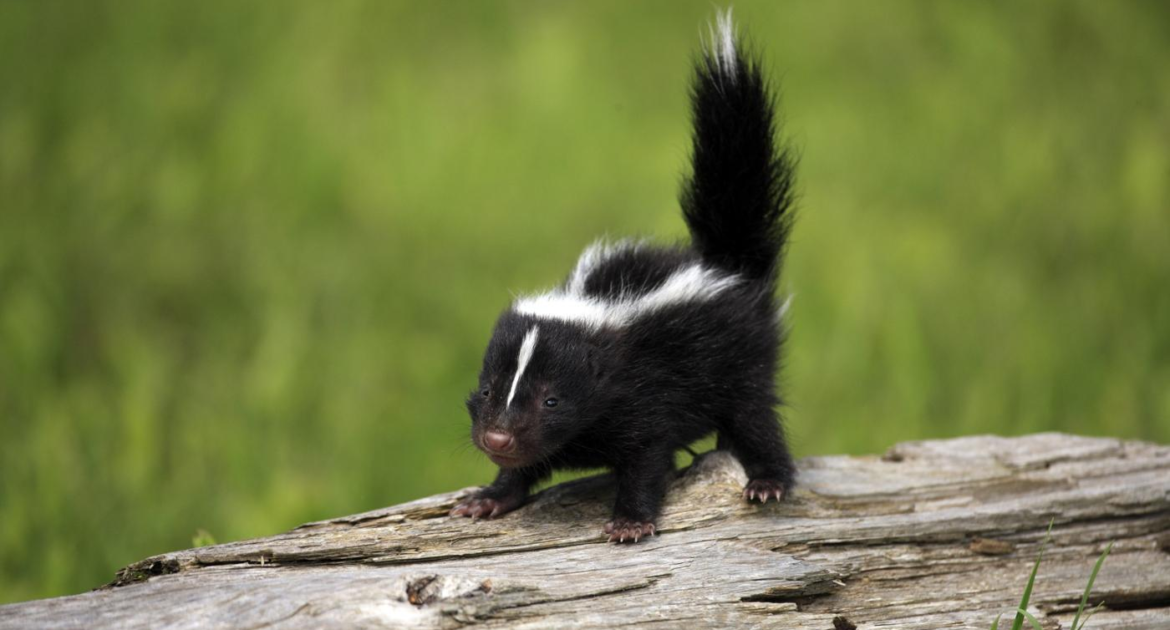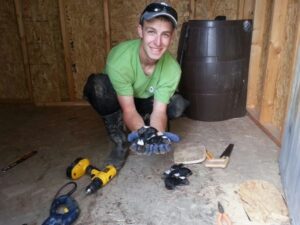People may have varying reactions to baby skunks. Some may be enchanted by their cuteness, while others may fear that the babies will spray them. Neither reaction is very constructive. Skunks, especially babies, do not mean harm and should not be feared, but they are wild animals that do not belong in your home. They deserve respectful treatment, which includes humane baby skunk removal. Here are some things you should know about the fascinating life of a baby skunk.
When Is Skunk Mating Season, and When Are the Babies Born?
Skunk mating season occurs from February to March. During this time, you may be more likely to smell skunk spray. Female skunks that are not interested in a male’s advances may spray them as a deterrent. A skunk’s gestation period is about two months, during which time the female skunk starts looking for a new den and gathers plant material for bedding along the way.
Skunks are burrowing animals so they build dens near the ground. On your property, spaces under decks, porches, or sheds may provide desirable nesting sites. Skunks prefer burrowing in an existing space to excavating an all-new den. The baby skunks typically arrive during April and May, and there may be four to seven babies, also called pups, per litter. Older females tend to be ready for mating before younger ones and also have larger litters. Because they mate early, an older female skunk may be able to produce two litters a year, but one litter annually is the norm.
What Do the Babies Look Like, and Can They Spray?
Baby skunks are born deaf, blind, and without fur. Their skin is pink and soft, and their eyes are closed. It doesn’t take long for their fur to start growing in, and then their distinctive black-and-white markings are evident. Their eyes open when they are about three weeks old, which is about the same time that they gain their spraying ability.
Nature equips baby skunks to defend themselves long before they are ready to leave the den and venture out into the world. A baby skunk’s spray doesn’t smell as strongly as an adult’s, and when they do spray, it is a smaller amount. Adult skunks usually send ample warning signs before spraying, but a baby skunk may spray without any indication. When a skunk is young, its aim may not be as accurate as an adult skunk’s, but eventually, they develop the necessary skill. Much like adult skunks, when babies feel threatened they will release the spray. This is one of the many reasons why a professional should always be brought in for removal.
How Long Do Skunks Stay With Their Mother, and What Do They Eat?
Baby skunks stay with their mother for about three to four months. Being born in the spring, they are typically mature enough to set off on their own by the fall. During the first six weeks of their lives, baby skunks are completely dependent on their mother, feeding on her milk. They will sleep in the den all day as their mother feeds them and goes out to collect food for herself. Though baby skunks can spray when they are only a few months old, mothers don’t take any chances with their safety. They are extremely protective of their offspring, ready and willing to spray to defend them from potential predators.
At six weeks old, the baby skunks are old enough to start venturing out of the den with their mother. During these excursions, she teaches them the skills they need to survive on their own, such as using their claws to dig and how to locate fruits and grubs to eat.
How Do You Know if There Are Skunks on Your Property?
If there are skunks on your property, you may detect a faint but persistent odour around the house and yard. Skunks dig to find food such as grubs, so you may find shallow holes around your yard where they have been foraging. You may see their footprints in snow or mud around your house. If you notice a pile of dirt or signs of digging near a shed or porch, it may mean that a skunk has made a den underneath it. If you see signs such as these, contact Skedaddle for baby skunk removal right away.






